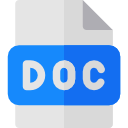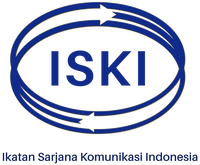Inovasi e-Health Dinas Kesehatan Kota Surabaya
DOI:
https://doi.org/10.31315/jik.v14i3.2128Keywords:
e-Health, Difusi, Inovasi, Studi KasusAbstract
Dinas Kesehatan Kota Surabaya berupaya meningkatkan pelayanan kesehatan dengan mengadopsi inovasi di bidang kesehatan dalam bentuk e-Health. Keberhasilan penerapan e-Health sebagai sebuah inovasi sangat ditentukan oleh keberhasilan pengkomunikasian/pendifusiannya. Metode yang digunakan dalam penelitian ini adalah metode studi kasus. Inisiasi inovasi e-Health oleh Dinas Kesehatan Kota Surabaya sebagai obyek dapat ditempatkan sebagai sebuah kasus. Hasil penelitian menemukan bahwa proses pengkomunikasian e-Health dilakukan secara struktural dan kultural. Secara struktural dengan mengoptimalkan semua perangkat SKPD yang relevan hingga kecamatan dan kelurahan. Secara kultural dengan edukasi masyarakat terkait dengan informasi dan penggunaan e-Health. Sedangkan penerapan e-Health selain dengan menyediakan fasilitas e-Health dalam bentuk e-Kios yang ditempatkan di kantor kelurahan, puskesmas dan tempat pelayanan umum, aplikasinya sangat mudah dan informatif dengan menggunakan tiga bahasa yaitu, bahasa Indonesia, Jawa, dan Madura sesuai karakteristik sosiologis masyarakatnya.
References
Brown, L.A. (1981). Innovation diffusion: a new perspective. London:
Methuen. Dalam Progress in Human Geography 30, 4 (2006) pp. 487–494.
Creswell, J. W. (2007). Qualitative Inquiry & Research Design: Choosing Among Five Approaches (2nd ed.). Thousand Oaks, CA: Sage.
Creswell, John W. (2003). Research Design: Qualitative, Quantitative, and Mixed Methods Approaches (2nd ed.). Thousand Oaks: Sage. Dutta, Mohan J. (2011). Communicating Social Change : Structure, Culture, and Agency. New York : Routledge.
Eckstein, H. (2002). Case study and theory in political science. In R. Gomm, M. Hammersley, & P. Foster (Eds.), Case study method: Key issues, key texts (pp. 119-163). London: Sage.
Greenhalgh, Trisha et all. (2005). Diffusion of Innovations in Health Service Organization : A Systematic Literature Review. Victoria : Blackwell Publishing.
Katz, Elihu (1999). Theorizing Diffusion: Tarde and Sorokin Revisited. Annals of the American Academy of Political and Social Science, 566 (1), 144-155. Kirch, Wilhelm (2008). Encyclopedia of Public Health. New York ; Springer.
Perdana, Nusrinda Putri (2016). Survey Kepuasan Masyarakat Terhadap Layanan E-Health di Puskesmas Ketabang Surabaya. Jurnal Ilmu Administrasi Negara Publika, Vol 4, No. 1, 2016.
Rogers, Everet M. (1962, 1971, 1983). Diffusion of Innovation. 3th ed. New York : The free press.
Stake, Robert E. (2000). Case studies. In Norman K. Denzin & Yvonna S. Lincoln (Eds.), Handbook of qualitative research (pp.435-453). Thousand Oaks: Sage.
Tarde, Gabriel. 1903. The Laws of Imitation ; 2nd ed., New York: Henry Holt.
Tedd, Joe (2010) Gaining Momentum : Managing The Diffusion of Innovations. London : Imperial College Press.
Reformasi Birokrasi. Dalam http://pemerintah.net/reformasi-birokrasi/. Diakses tanggal 3 September 2016 jam 16.38.
Top 25 Terpilih dalam Kompetisi Sinovik, Rabu, 29 April 2015. Dalam http://nasional.news. viva.co.id/ news/read/620180-top-25-terpilih-dalamkompetisi-sinovik. Diakses tanggal5 September 2016 jam 11.56.
Surabaya Launching 203 Anjungan Pelayanan Publik, Senin 10 November 2014. Dalam http://www.menpan.go.id/berita-terkini/2810-surabaya-launching203-anjungan-pelayanan-publik.
Downloads
Published
Issue
Section
License
Authors who publish articles in this journal agree to the following terms:
- Copyright remains with the author and gives rights to the Jurnal Ilmu Komunikasi as the priority to publish the article with an Creative Commons Atribusi 4.0 Internasional License, which allows the article to be shared with acknowledgment of the author of the article and this journal as the place of publication.
- Authors can distribute the publication of their articles on a non-exclusive basis (for example: on university repositories or books) with notification or acknowledgment of publication in the journal Option
- Authors are allowed to post their work online (for example: on personal websites or in university repositories) before and after the submission process (see The Effect of Open Access)
Jurnal Ilmu Komunikasi is licensed under a Creative Commons Atribusi 4.0 Internasional License.










